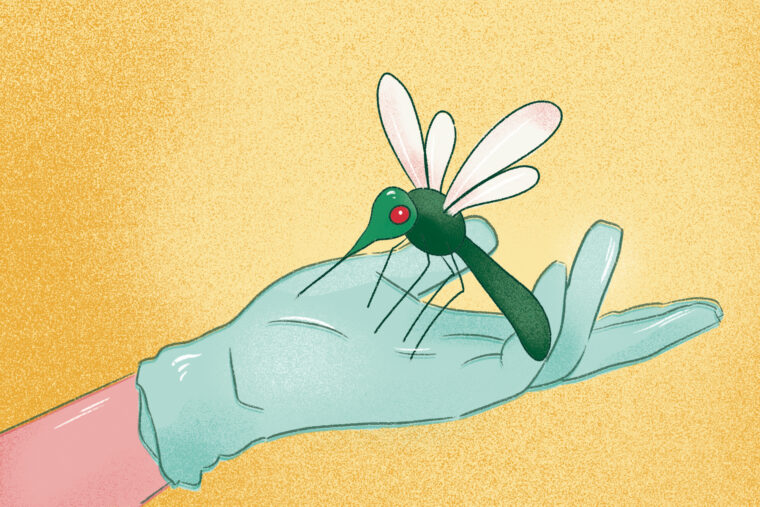
Scientists at WashU Medicine are laying the groundwork to rapidly respond to potential future pandemics caused by viruses from five understudied families.
The effort - whose aim is to develop strategies and tools to produce vaccines and antibody-based therapies in advance of future pandemic threats - is supported by two major grants from the National Institute of Allergy and Infectious Diseases (NIAID), part of the National Institutes of Health (NIH), which together will add up to more than $90 million in funding over the next three years.
One grant, totaling about $15.6 million per year for three years, is focused on the alphavirus and flavivirus families. These mosquito and tick-borne viruses cause arthritis, brain infections and congenital disease, and the best-known members include dengue, Zika, West Nile and chikungunya viruses. The other grant, for $14.7 million per year for three years, takes aim at virus families that include respiratory pathogens such as the mumps virus, as well as insect-borne viruses that cause high fevers such as Oropouche and Rift Valley fever viruses. Both grants are part of NIAID's newly established Research and Development of Vaccines and Monoclonal Antibodies for Pandemic Preparedness (ReVAMPP) Network, and WashU Medicine researchers are leading two components of the network.
"If the COVID-19 pandemic taught us anything, it's that being prepared saves lives," says Michael S. Diamond, MD, PhD, the Herbert S. Gasser Professor of Medicine at WashU Medicine and the director of the ReVAMPP flavivirus and alphavirus program led by WashU Medicine. Diamond is also a professor of molecular microbiology and of pathology and immunology at WashU Medicine. "We had some preparation for the COVID-19 pandemic because of previous research on the related SARS and MERS viruses. But there are other viruses with potential to cause pandemics for which we are even less prepared. We don't have specific therapies for any of the flaviviruses or alphaviruses, and we don't know how to quickly make safe and effective vaccines for them, either."
The research programs focus on one or two prototype viruses from each family, using them to develop and evaluate vaccine platforms and antibody-based treatment approaches that can be rapidly adapted to generate safe and effective vaccines and drugs for other members of the families in case of an emerging pandemic.
"There's no way to predict when and where the next pandemic virus will emerge, so we need to be prepared for all possibilities."
Sean Whalen, PhD
In addition, the teams are working on optimizing antibody-based treatments. These drugs, commonly used to treat cancer and infections, are a crucial part of the pandemic response toolkit because they can be developed much more quickly than other kinds of drugs for infectious diseases. The challenge is that viruses can develop resistance that undermines their utility, which is why all the antibody-based therapies initially approved for COVID-19 became less useful as the virus evolved and were eventually withdrawn.
"There's no way to predict when and where the next pandemic virus will emerge, so we need to be prepared for all possibilities," says Sean Whelan, PhD, the Marvin A. Brennecke Distinguished Professor and head of the molecular microbiology department. Whelan is the director of the ReVAMPP paramyxovirus, peribunyavirus and phlebovirus program led by WashU Medicine. "We're identifying the principles that determine a strong immune response for these virus families, so we can apply those principles to rapidly design and produce protective vaccines as needed."






